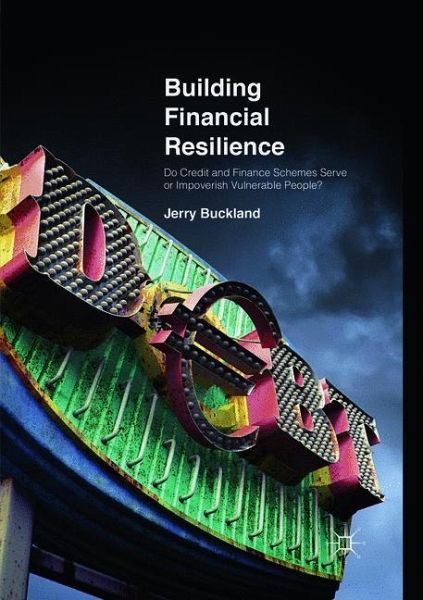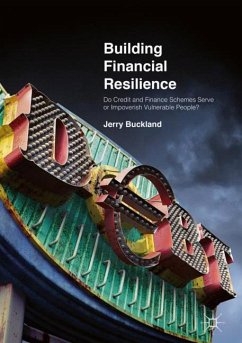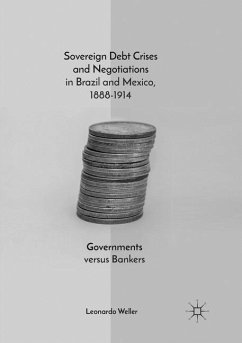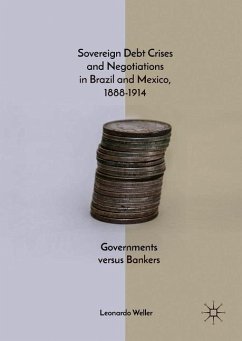
Building Financial Resilience
Do Credit and Finance Schemes Serve or Impoverish Vulnerable People?
Versandkostenfrei!
Versandfertig in 6-10 Tagen
65,99 €
inkl. MwSt.
Weitere Ausgaben:

PAYBACK Punkte
33 °P sammeln!
This book examines how credit and finance schemes affect the financial lives of vulnerable people around the world. These schemes include payday lending, matched savings, and financial literacy in the Global North, and micro-credit and mobile banking in the Global South. Buckland sets these schemes within the context of financialization and seeks to identify strengths, weaknesses, and ways to enhance the well-being of vulnerable people. This book's coverage of a wide range of financial products and geographic regions makes for a unique and innovative perspective on this topic. It presents a ba...
This book examines how credit and finance schemes affect the financial lives of vulnerable people around the world. These schemes include payday lending, matched savings, and financial literacy in the Global North, and micro-credit and mobile banking in the Global South. Buckland sets these schemes within the context of financialization and seeks to identify strengths, weaknesses, and ways to enhance the well-being of vulnerable people. This book's coverage of a wide range of financial products and geographic regions makes for a unique and innovative perspective on this topic. It presents a balanced critique of credit and finance schemes under the assumption that reform is the most practical means to improve human well-being.














